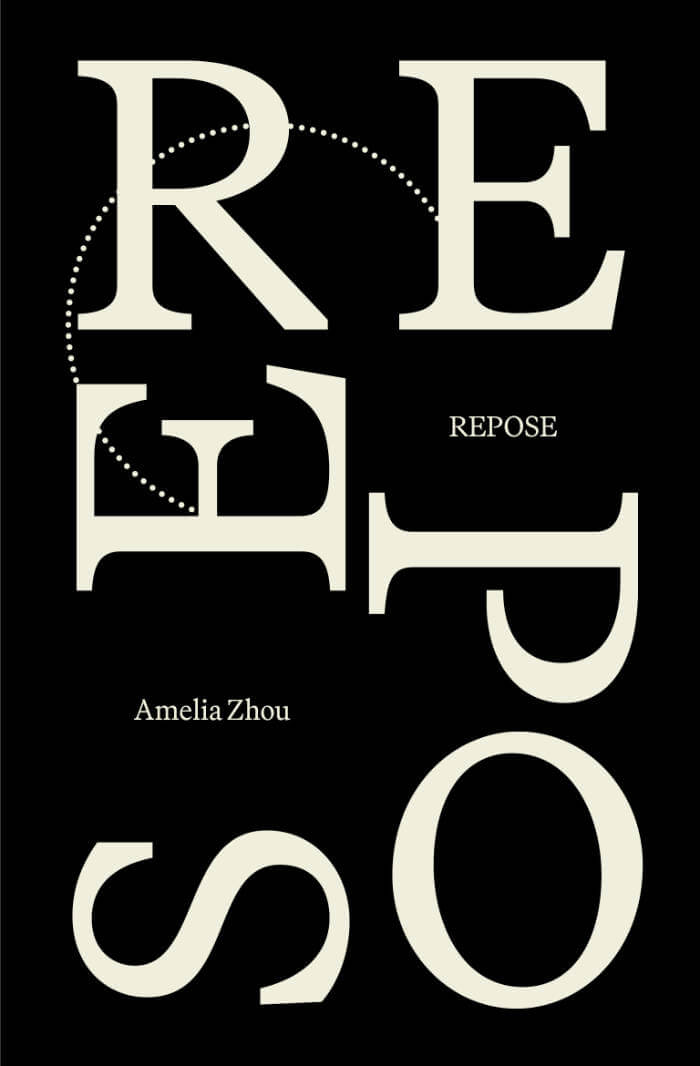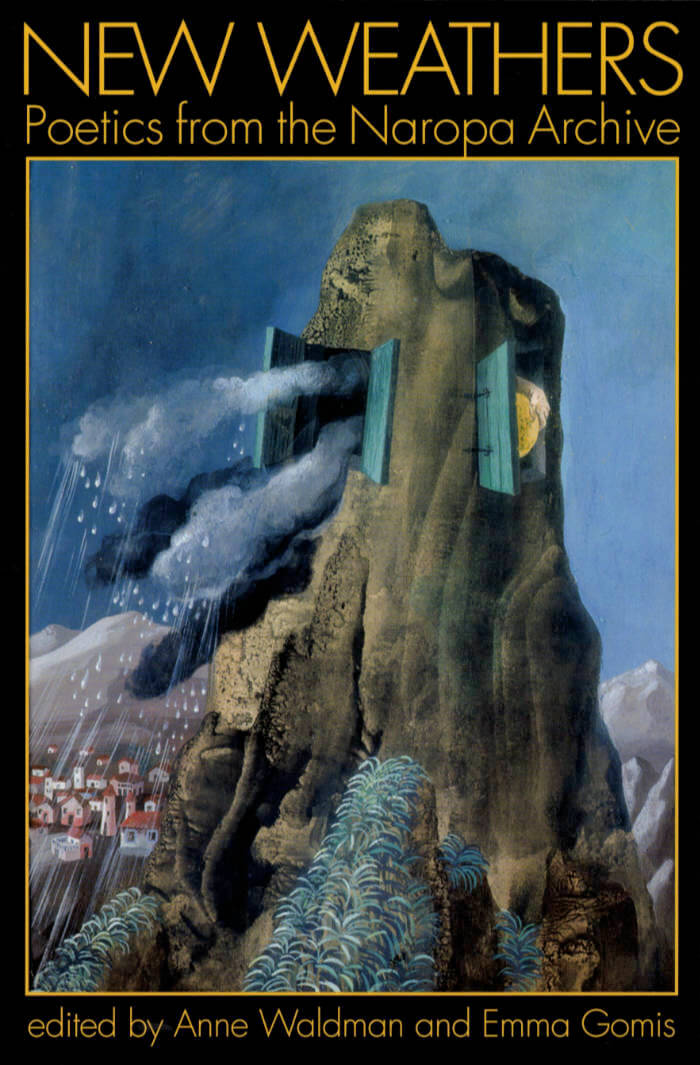Asiya Wadud
Asiya Wadud

Mandible Wishbone Solvent
Brooklyn-based poet Asiya Wadud's fifth collection of poetry, Mandible, Wishbone, Solvent, engages migration, climate change, race, sexuality, and art-though not necessarily in that order-with a dynamic urgency and graceful restraint held in balance by a deep literary investment in the historical aesthetics of abstraction.
Punctuated by images of Wadud's own original art, the poems and prose of Mandible, Wishbone, Solvent offer an indirect meditation of the concepts of the drift ("Embedded in the act of drift can be the prior commitment or desire against drifting") and the isthmus ("An isthmus is a passageway, a threshold, underbrush, thicket, and deliverance"). Wadud constructs a latticework through which language circulates and creates new patterns that probe the natural world's edges, fissures, gaps, and seams. Further, the lyric poems suggest a relationship between speaker and environment that yearns to invert or dissolve the subject-object divide, creating instead an isthmus that joins and allows a drifting between them.

Syncope
Through a series of prayers, invocations, and hymns, Syncope eulogizes those who have perished making Central Mediterranean crossings as well as collects first-hand accounts of those who have survived these perilous journeys. Forces of fate brought errant lives together for a hopeful safe passage and ultimately, linked these lives in their untimely deaths. Syncope attempts to shed some light on these lives, as well as the happenstance of living and dying while trying to cross a border.
Asiya Wadud is the author of Crosslight for Youngbird, published by Nightboat Books in 2018, day pulls down the sky… a filament in gold leaf written collaboratively with Okwui Okpokwasili (2019, Belladonna/ Danspace), and Syncope (UDP 2019). Her collection No Knowledge Is Complete Until It Passes Through My Body (Nightboat Books) is forthcoming in 2020. Asiya teaches poetry at Saint Ann’s School and leads an English conversation group for new immigrants at the Brooklyn Public Library.

day pulls down the sky
Okwui Okpokwasili, Asiya Wadud
day pulls down the sky is the title of Okpokwasili’s first (and simultaneously released) LP initiated by Danspace Project’s executive director and chief curator Judy Hussie-Taylor who brought the idea of a recording to Okwui during one of their meetings about Danspace’s Platform 2020 and research institute. These songs were written by Okwui between 2012 and 2018, some specifically for her interdisciplinary performances. Four of the songs were first performed by Okwui at Danspace Project, including “sam’s song” on the occasion of Sam Miller’s memorial on September 15, 2018.
And more

A Grammar Built with Rocks
Shoghig Halajian, Suzy Halajian
Featuring writing and artistic practices that trace the racialized and gendered relationship between bodies and land, A Grammar Built with Rocks explores artists’ engagement with sites of physical dispossession and socio-ecological crisis, highlighting how creative research methodologies can serve as radically new place-making practices. The publication brings together a range of feminist-decolonial texts and visual contributions that explore how movement, transience, and improvisation offer alternative ways of being-together while being-in-place.
Contributions by: Basel Abbas and Ruanne Abou-Rahme with Fawz Kabra, Jheanelle Brown and Julien Creuzet, Carolina Caycedo, Ryan C. Clarke and Cauleen Smith, DAAR—Decolonizing Architecture Art Research with Nicola Perugini, Sandra de la Loza, Demian DinéYazhi’, rafa esparza, Mashinka Firunts Hakopian, Tia-Simone Gardner, Raquel Gutiérrez, Suzanne Kite with Mahpíy̌a Nážinn, Candice Lin, Jumana Manna, K-Sue Park, Christine Rebet, Susan Silton, and Asiya Wadud.
The book also includes a reader, with grounding texts, sources of inspiration, and research references, by Jason Allen-Paisant, Dionne Brand, Suzanne Césaire, Lisa Lowe, Camila Marambio and Cecilia Vicuña, Robyn Maynard and Leanne Betasamosake Simpson, M. NourbeSe Philip, and K. Wayne Yang.
About the editors
Shoghig Halajian is a curator, writer, and artist whose work explores queer and diasporic imaginaries, place-based practices, and experiments in collectivity and collaboration. She is co-editor of the online journal, Georgia, which is supported by a Creative Capital | Andy Warhol Foundation Arts Writers Grant. Select curatorial projects include: A grammar built with rocks (Human Resources LA, One Archives at the USC Libraries, and REDCAT, 2018); At night the states (Hammer Museum, 2017); DISSENT: what they fear is the light (LACE, 2016); and rafa esparza: I have never been here before (LACE, 2015). She was a TBA21 Ocean Space Fellow in Venice (2021) and a curatorial fellow at École du Magasin in Grenoble (2011), where she co-curated the exhibition, The Whole World is Watching, on the the collective Vidéogazette (1973–76), which organized a public access television program in the city. She received her PhD in Art History, Theory, and Criticism with a specialization in Critical Gender Studies from the University of California, San Diego in 2024.
Suzy Halajian is a curator and writer based in Los Angeles, where she serves as the Executive Director and Curator at JOAN. Her practice is invested in long-term collaborations with artists, critically engaging with the intersections of art, politics, and social histories. She explores strategies of image-making through the lens of colonial histories and contemporary surveillance states. Halajian has curated exhibitions and public programs at institutions such as Los Angeles Contemporary Exhibitions (LACE), ONE Archives at the USC Libraries, the Hammer Museum, and Human Resources Los Angeles, as well as Tanya Bonakdar Gallery (New York), Oregon Contemporary (Portland), Kunstverein (Amsterdam), UKS (Oslo), Galerie Hubert Winter (Vienna), and the Sursock Museum (Beirut). She also serves on the Programming Committee at Human Resources and has worked with nonprofit organizations including the MAK Center for Art and Architecture (Los Angeles) and Ashkal Alwan (Beirut). Her curatorial work and writing have been supported by the Graham Foundation, the Andy Warhol Foundation Arts Writers Grant—for Georgia, a journal she co-founded and co-edits with Anthony Carfello and Shoghig Halajian—and a Curatorial Research Fellowship from the Andy Warhol Foundation for the Visual Arts. Halajian’s writing has appeared in ArteEast, BOMB, X-TRA, Ibraaz, and other publications. She holds an MA from the Center for Curatorial Studies at Bard College and is currently a PhD candidate in the Film and Digital Media program at the University of California, Santa Cruz.

Repose
In her debut book, Amelia Zhou poses the question, “How do I perform or not perform?” Weaving together poems, fiction, and lyric essay, Repose follows an unnamed woman grappling with the limits of the self on the everyday stage of labor and routine, charting her emergent modes of resistance. She is already steps ahead, deftly shifting between worker and dancer, roving through the haunted space in which a performance has just ended, the ruins of a house, or a skyscraper aflame. Seeking the edges of form—where it exceeds itself, where it breaks down—Repose offers a narrative of girlhood invigorated by the mutual possibilities of dreaming and defiance.
Amelia Zhou's Repose is the 2022 Open Reading Period Book Prize winner, and was selected by guest judge Asiya Wadud.
About the author
Amelia Zhou was born and raised in Sydney, Australia, and currently lives in Cambridge, England. Her work as a writer is often interdisciplinary and hybrid in form and media, and has appeared most recently in Fence, Liminal, and Orleans House Gallery. She is pursuing a PhD in English at the University of Cambridge, where she is researching the role and politics of photography in largely anglophone life narratives from the 1970s to the present. She is also currently one of Sydney Review of Books' 2024–25 Emerging Critics Fellows. Repose is her first book.
Praise
Real estate agent, surgical patient, ballet dancer, baby raiser... In Amelia Zhou’s layered, lucid, and dream-suffused Repose, performing professionals remind us that the girl’s vocation remains the management of (her) appearances. As “second bodies,” these figures hover and break apart, like a “mouth now wandering away.” Following the paths of their roving weirdness, Zhou’s poetics alert us to some other more sublime task. “To bloom out the ragged bud.” To notice the “furious dignity” in all her/our many scraps and shreds. —Lauren Bakst
Amelia Zhou’s Repose is a work of measured reflection: it is also a work that is as full of movement and intelligence as the two mediums that Zhou invokes throughout the book, cinema and dance. —Aurelia Guo
Early on in Amelia Zhou’s Repose, the speaker asks the reader, “Do all lost things live in ruins?” Ruins—as in aftermath, as in refuse, as in the rotting and wilted physical landscape—permeate this deft and roving collection of poems. Zhou’s work rests in the fleeting space of bodies in motion, the friction of bodies troubling and inhabiting spaces across planes and distances. Zhou does not attempt to still this movement. Instead, she allows it to fold and create its own repetitions, logic, and accord. Along the way, Zhou opens up a space for the spectral. —Asiya Wadud

New Weathers: Poetics from the Naropa Archive: Lectures from the Naropa Archive
A collection of lectures transcribed from the audio archives of Naropa University's Summer Writing Program that represent a continuing lineage of experimental literary movements.
New Weathers asks us to consider how poetics might embolden deeper engagements with the world. Collected from the alternative education zone founded by Anne Waldman and Allen Ginsberg with the aim of opening up discourse and fostering political engagement, these texts invoke issues of gender and race-based injustice, the global climate crisis, and our possible extinction. They weave through our poetic community, the conversations we are having, the issues we are facing—our "new weathers" to posit strategies of resistance.
List of Contributors: Paula Gunn Allen, Amiri Baraka, Dan Beachy-Quick, Sherwin Bitsui, Robin Blaser, William S. Burroughs, Julie Carr, J'Lyn Chapman, Jos Charles, Jack Collom, Samuel R. Delany, kari edwards, Tongo Eisen-Martin, Tonya M. Foster, Forrest Gander, Alan Gilbert, Allen Ginsberg, Renee Gladman, Robert Glück, Lyn Hejinian, Lisa Jarnot, Kevin Killian, Thurston Moore, Fred Moten, Eileen Myles, Hoa Nguyen, Alice Notley, Akilah Oliver, M. NourbeSe Philip, Margaret Randall, Roger Reeves, Ariana Reines, Lisa Robertson, Ed Sanders, Andrew Schelling, Cedar Sigo, Eleni Sikelianos, Harry Smith, Edwin Torres, Cecilia Vicuña, Asiya Wadud, Peter Warshall, Eliot Weinberger, Peter Lamborn Wilson, and Ronaldo V. Wilson.

Belladonna Chaplets 2018
241. Laura Buccieri: Songbook for a Boy Inside
240. K. Lorraine Graham: from Feed
239. Marta López-Luaces: Reminiscences of Echoes
238. Montana Ray: Mirroring
237. Yumi Dineen Shiroma: A Novel Depicting “The” “Asian” “American” “Experience”
236. Anaïs Duplan: 9 Poems/The Lovers
235. Serena J. Fox: Night Landing
234. Orchid Tierney: Blue Doors
233. Aditi Machado: This Touch
232. Iman Mersal: الصوت في غير مكانه (The Displaced Voice); translated by Lisa White
231. Abdellah Taïa: 99 Names
230. Javier Zamora: Revising into the Right? Form…Hopefully?
229. Aracelis Girmay: MOTHER MOTHER YOU ARE WHO I LOVE
228. Christina Barreiro, Lindsey Hoover, Fatima Lundy, Rupert McCranor, Kayla Park, Chrissy Ramkarran, Asiya Wadud, Rachael Guynn Wilson: Out-Of-Office
227. Baseera Khan: Be Careful What You Wish
226. Maryam Monalisa Gharavi: Alphabet of an Unknown City
225. Göksu Kunak: I thought this would
Please specify which edition you would like. You can reach out to confirm availability of specific chaplets.